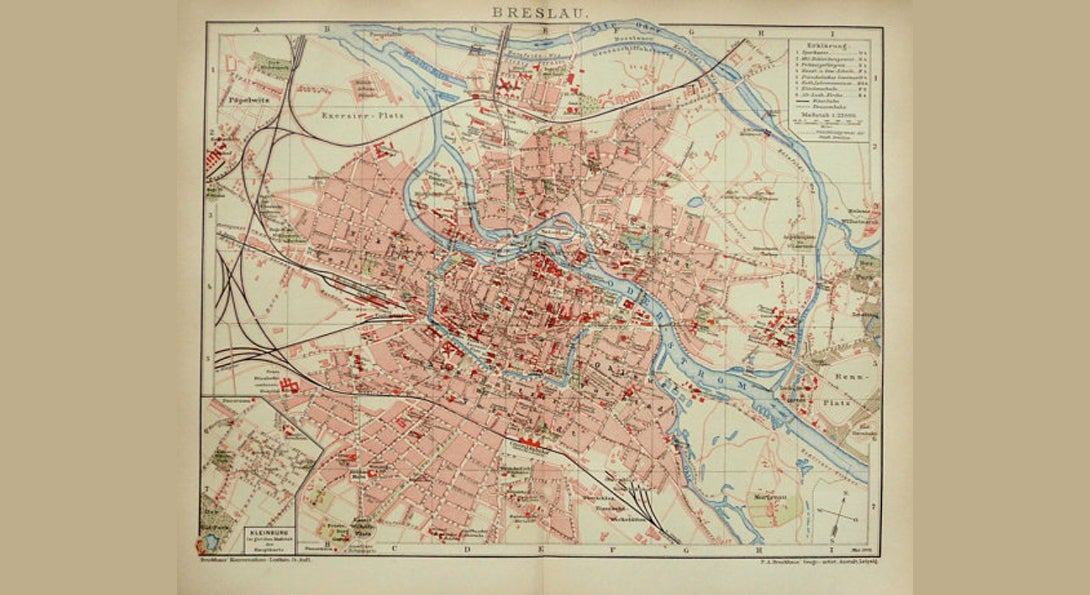Cities East and West: New Maps for Research

Annual Hejna Conference 2015
Organizers: Professor Michał Paweł Markowski (Hejna Family Chair in Polish Language and Literature) and Professor Keely Stauter-Halsted (Hejna Family Chair in the History of Poland)
Cities and urban environments in general are privileged sites of cultural interaction. As such, they reflect tensions and, sometimes violent, interplays between their inhabitants, and demonstrate the existence of a unique spatial order. The dynamic of social and cultural clashes found in cities consists in playing out centers against margins, open spaces against closed ones, or public areas against private ones. As the loci of symbolic display and aggressive propaganda, cities openly confront disparate ideologies and require political engagement from their citizens. As metaphors for social exchange, they reveal a plethora of contradicting interests and desires. They are far from being neutral spaces for living and should rather be seen as stages on which forced social performances, determined by institutions, meet individual urges. As historically built palimpsests, cities reveal multiple layers of the past buried in living and artificial memories. The dialectics between memories that cities carry within themselves and accumulate in the course of history and, on the other hand, the force of forgetting necessary for cities to develop is one of the most fascinating cultural processes we find in all urban settings. As Walter Benjamin once noted, “What has been forgotten […] is never something purely individual.” More research needs to be done on the process of burying and unearthing the experiences shared, lost, and recuperated by members of urban communities, or between antagonized groups within them. Equally interesting is the construction and deconstruction of the mythical dimensions of cities that, due to historical circumstances, moved from one culture to another (Breslau or Danzig on the one hand, Lviv and Vilnius on the other). One of the most recent examples of the last process is the ingenious display of the joint exhibition The Myth of Galicia, by The International Culture Center in Kraków and The Vienna Museum. There are, of course, many other samples of these constructive/deconstructive urban strategies in contemporary art, which is one of the most sensitive agents of change in our social and critical imagination.
Taking into consideration the ways in which the city can be approached as a polyvalent cultural text, the organizers of Cities East and West: New Maps for Research invite proposals for papers on all aspects of city life, with a focus on cities in the Polish historical space. The goal of the conference is to examine urban enclaves not as monolithic areas of habitation but rather as places of intersection, collision, coexistence, and exchange between classes, races, ideologies, ethnic groups, artistic styles, and private modes of everyday living. We are interested in the large panoramas of various cities, seen from vast sociological or historical perspectives, as well as in small, detailed, idiosyncratic accounts, created from microscopic viewpoints. We welcome papers and comments about migrations between cities, or between villages and cities, but also look for narratives of meandering through large and small cities in the past and present. Our goal is to examine the urban symbolic energy at the intersection of literary and historical studies.
The conference is a part of a broader series of Polish Studies meetings at the University of Illinois at Chicago. As such, the organizers are most interested in examinations of Central European cities (Polish in the first place, but also Austrian, Czech, , German, , Hungarian, Lithuanian, Russian, Ukrainian, etc., whose development was once in the orbit of Polish culture). No city in the region was immune to external influences and we are especially keen to consider cultural exchange between East and West, or North and South. We invite participants to draw new maps of seemingly well-charted territories. Organizers welcome papers written from different perspectives, using different methods and media. Our aim is to create a space for academic exchange that does justice to the rich, multifaceted urban experience of both past and present.
The conference will take place in Chicago at the Chopin Theater, Monday, April 13 and Tuesday, April 14, 2015.